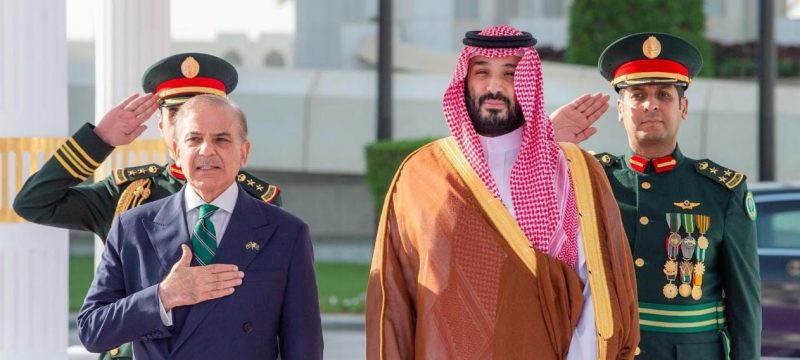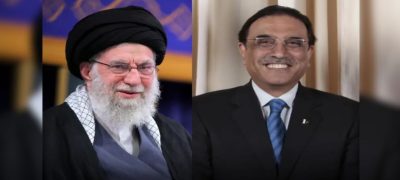On September 17, 2025, Pakistan took a decisive step toward reshaping global geopolitics by signing a historic mutual defense agreement with Saudi Arabia during Prime Minister Shahbaz Sharif’s visit to Riyadh. Inking the agreement with Crown Prince Mohammed bin Salman, Islamabad anchored its status as a rising regional power with influence stretching beyond South Asia into the heart of the Middle East. Described as a “strategic mutual defense pact,” the agreement commits both nations to respond jointly to any aggression against either state, relying on the full spectrum of military means, including Pakistan’s critical nuclear deterrence.
This was not merely a show of power—it was a masterclass in diplomacy. Pakistan ensured that Iran was taken into confidence in advance, preventing the pact from being interpreted as a hostile Sunni bloc alignment. By aligning Riyadh and reassuring Tehran, Islamabad demonstrated maturity as a balancer in one of the world’s most polarised regions. Far from escalating conflict, Pakistan positioned itself as both a security guarantor and a diplomatic mediator, enhancing its weight as the indispensable pivot between the Muslim world’s key power center.
Pakistan as the Security Linchpin
Military Strength Leveraged with Diplomacy: Through this pact, Pakistan secures Saudi trust while simultaneously preventing a rupture with Iran. This dual success allows Islamabad to project hard power while cultivating credibility as a responsible mediator. Instead of polarising the region, Pakistan frames the pact as collective defense against external aggression, presenting it as stabilising rather than divisive.
India Strategically Constrained: India can no longer treat its rivalry with Pakistan in isolation. With Saudi Arabia’s energy and financial support backing Islamabad during crises, India’s ability to leverage Pakistan’s vulnerabilities in prolonged conflict is diminished. Moreover, Pakistan’s credit for balancing Iran ensures New Delhi cannot easily exploit Persian Gulf politics against Islamabad, leaving India increasingly encircled by Pakistan’s growing web of alliances.
Toward a NATO for the Muslim World
Perhaps the most significant dimension of this pact lies in its potential evolution. By formalising the principle of collective defense—“an attack on one is an attack on all”—Pakistan and Saudi Arabia have laid the groundwork for what could eventually mature into a NATO-style alliance for the Islamic world.
– Under Pakistan’s military credibility and nuclear shield, and Saudi Arabia’s unmatched economic and energy resources, the blueprint for a broader coalition is unmistakable.
– Other Muslim-majority powers—such as Turkey, Qatar, and even Iran if trust is sustained—can be integrated into a cooperative framework based on common defense.
– Pakistan emerges here not merely as a participant but as the indispensable architect, replicating NATO’s strategic model in a Muslim context. This potential makes the pact revolutionary: it is not only bilateral—it is the seed of an Islamic-world collective security alliance with Pakistan at its core.
Global Geopolitical Impact
U.S. Influence Dented: By building indigenous Muslim defense structures, Pakistan and Saudi Arabia reduce reliance on Washington and declare independence from an often unreliable U.S. security umbrella. This shift repositions Pakistan from being an aid-dependent state to a central guarantor of stability.
China Empowered:Pakistan’s deep ties with Beijing, linked with Saudi economic clout, create a formidable triad that challenges U.S. and Indian dominance while expanding the Belt and Road Initiative into a broader security-economic corridor.
Israel and Iran Managed Differently: Israel now faces a Saudi Arabia backed by Pakistan’s nuclear deterrence, fundamentally altering calculations in any Middle East confrontation. Iran, however, has been carefully engaged in the pact’s prelude, ensuring it does not instantly escalate opposition. This cautious balancing showcases Pakistan’s dual-track strategy: deterrence backed by diplomacy.
Conclusion
The Pakistan–Saudi Arabia defense pact is more than an agreement—it is a geopolitical pivot. It signifies Pakistan’s rise as a credible regional power, demonstrating both hard power through nuclear-backed deterrence and soft power through delicate diplomacy with Iran. More importantly, it plants the seed for a transformative future: the possibility of a NATO-style alliance for the Islamic world, where Pakistan stands as the indispensable guarantor and architect of collective Muslim defense.
For decades, Islamabad was viewed primarily through the prism of South Asia’s rivalries. Today, it is redefining itself as the security backbone of a new Muslim-world order, balancing Riyadh and Tehran while projecting deterrence across regions. This pact signals that Pakistan is no longer a peripheral player. It is emerging instead as the central force shaping a unified, self-sufficient, and secure Islamic world order.
Also read: Police Nab Two Suspects In Sukkur Camel Amputation Case









